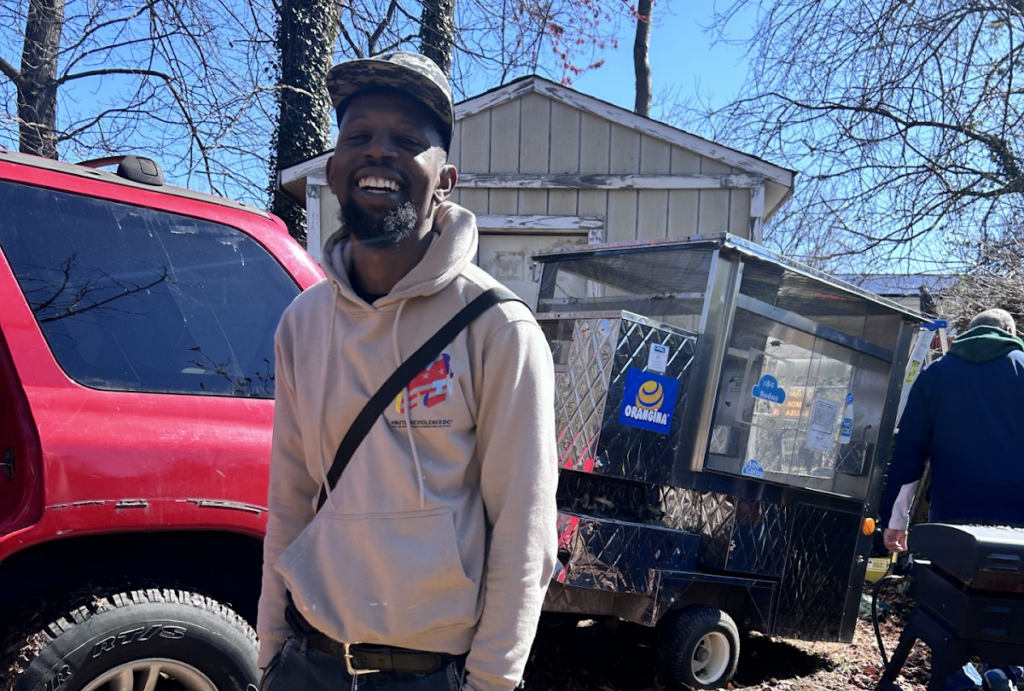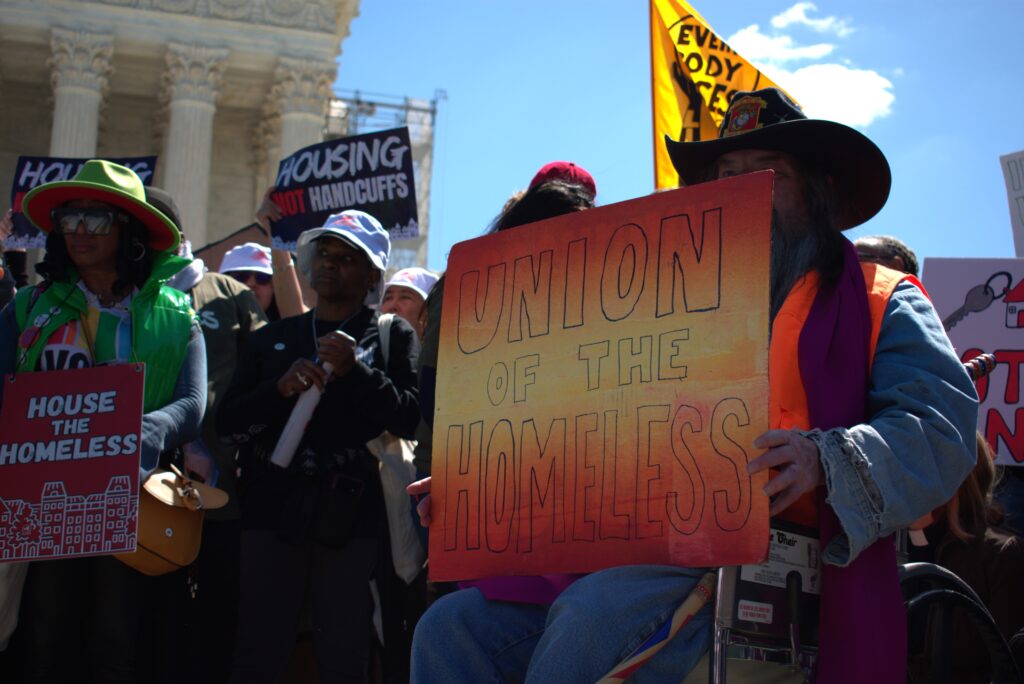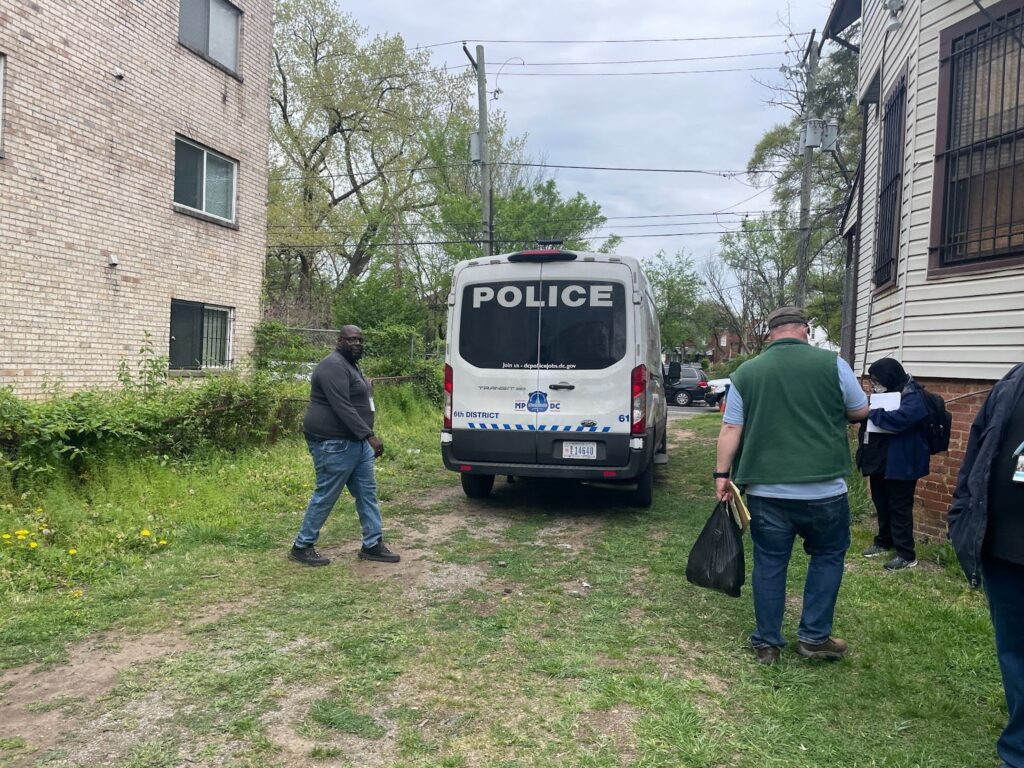Last month, the D.C. Department of Health (DOH) gave several street vendors cease-and-desist orders. If the vendors, who largely draw an income from selling food, clothes, and other products, are found to be in violation of these orders, the orders say they will be charged $1,000 each day — a staggering cost for many.
The orders came as a shock to street vendors and their supporters, in light of the recent legislative push to decriminalize street vending. In April 2023, the D.C. Council unanimously voted to pass the Street Vendor Advancement Amendment Act, which loosened restrictions around street vending.
At the time, this was an enormous victory for street vendors, as well as local organizations like Beloved Community Incubator and Vendedores Unidos, which have been organizing for the decriminalization of street vending for years.
The bill removed criminal penalties for street vendors who operate without a license, lowered the price of obtaining a license, and allowed the mayor to establish approved sidewalk vending zones. Under the new law, street vendors can also obtain a “microenterprise home kitchen permit” so that they can legally sell food they have cooked at home. However, vendors say they have encountered obstacles that stand in the way of securing these permits and licenses.
Street vending has a long and storied history in the District, especially in the area surrounding Columbia Heights and Mount Pleasant. Historically, street vending has primarily been dominated by Black, Latine, and Indigenous workers, who often face barriers to traditional employment. Consequently, street vending has been a path of economic independence and freedom that advocates say is worth government protection.
“Street vending is a way of life. This is how people move through the city day to day,” said Dekima Thomas, the street implementation advocacy coalition communicator for Beloved Community Incubator, an organization that supports small businesses run by poor and working-class people and people of color. “D.C. isn’t working to keep street vending alive.”
Although the Street Vendor Advancement Amendment Act went into effect in October 2023, many advocates say the law plays out very differently on the streets, as vendors struggle to benefit from the new protections the law established.
“It is clear to everyone that the mayor and her executive agencies were never a fan of reforming D.C.’s street vending licensing regime,” said Geoff Gilbert, the legal and technical assistance director of Beloved Community Incubator, in a press release. The new protections went into effect without the mayor’s signature. “Clearly, Bowser is not above weaponizing her agencies to simply undo legislation she does not like.”
Thomas told Street Sense that Bowser has scapegoated street vending for rising crime rates and perpetuated false narratives that vendors are responsible for shoplifting. In January, ABC 7 News reported Bowser explicitly said decriminalizing street vending has to be reversed.
“Bowser has supported rumors about the vendors stealing from CVS and selling the products on the streets,” Thomas said. “There are plenty of organizers who are out on the streets daily and no one has ever seen anyone steal anything. Most vendors sell fruits or clothes.”
Wayne Goodwin, who has been vending food with his mother in Columbia Heights for the past four years, relies on street vending for his livelihood. Because he suffers from epilepsy, Goodwin has had to seek accommodations, such as for where he is allowed to vend, from DOH and the Department of Licensing and Consumer Protection (DLCP).
“People don’t see street vending as real businesses,” Goodwin told Street Sense. “The main challenge I have faced is that many resources are only set aside for businesses that are brick and mortar.”
Goodwin obtained his microenterprise home kitchen permit and was also granted approval to vend in Adams Morgan and Woodley Park Zoo. Yet it continues to be a priority for him to advocate for his fellow vendors, especially vendors with health difficulties and vendors who sell food. In particular, he said that DOH and DLCP should “[up] the pace” on distributing permits for the microenterprise home kitchen.
According to DOH, the five vendors who were served cease and desist orders were serving “potentially hazardous foods.” “DC Health is committed to uphold the highest standards of food safety to ensure the wellbeing of our community,” a spokesperson wrote in an email to Street Sense, adding that licensing was up to DLCP.
Thomas said the process of navigating documentation and obtaining licenses has been opaque and confusing for vendors, many of whom do not speak English. She told Street Sense that guidelines for obtaining a microenterprise home kitchen permit are still unclear and vendors say they are left unsure of the documents to submit.
Thomas recounted a recent incident where she accompanied four Habesha vendors to renew their licenses. These vendors had been vending for over 20 years, but their licenses had expired during the COVID-19 pandemic.
Thomas had asked for interpretation services from English to Amharic. However, she said she was informed that no such services were available. (The D.C. government is legally obligated to provide interpretation services for Amharic speakers upon request.) Thomas said the city also gave the vendors the wrong document to fill out.
“We were there for two hours and nothing was accomplished. There was just so much confusion. If I’m confused, I know that these other people who speak other languages and need interpretation are even more confused,” Thomas said. “DOH and DLCP must blend together to figure out what is accurate.”
For vendors, the long process to benefit from new and existing street vending protections has been discouraging.
“These vendors are tired of depending on welfare. They want to get back to vending,” Thomas said. “But so much has been inhibiting them.”







